For a better, faster experience.
10 Books That Break Mental Blocks and Build New Pathways
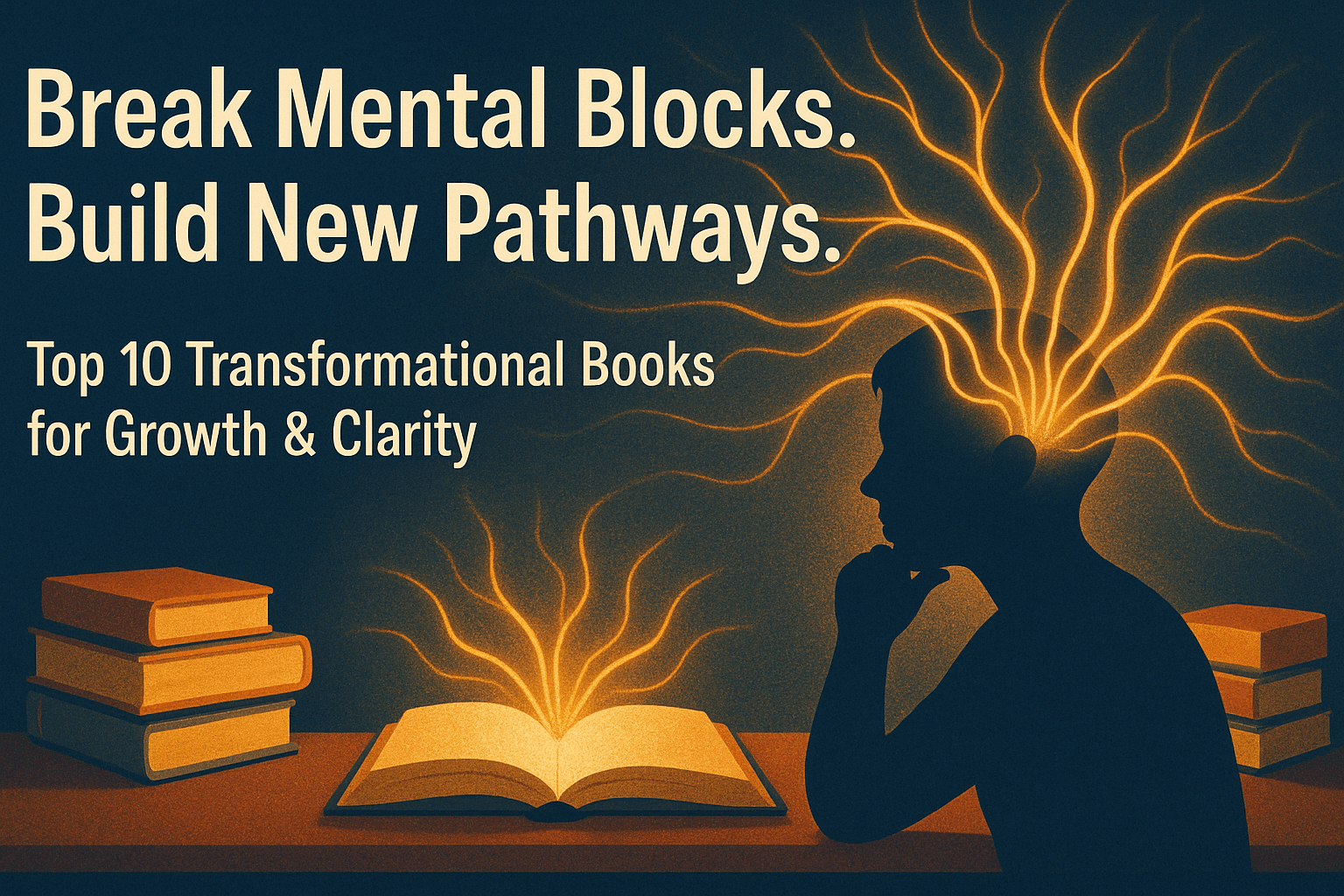
Mental blocks feel like invisible chains holding someone; they hamper a person's growth and effortfulness. Whether working to promote one's corporate career, an entrepreneur trying to create something new, a student losing focus, or a creative soul doubting himself, all these different faces of a mental block are common.
Fortunately, given by the right book, these interlocking barriers can be dismantled and new neural pathways can be formed.
In this detailed guide of 10 Books That Break Mental Blocks and Build New Pathways, we have curated a list of life-transforming books that incorporate psychology, neuroscience, and years of practical experiences. These books are more than just repositories of information; they serve as activation triggers. You are going to find tools to reorder your thinking, ignite motivation, build emotional resilience, and instill a sense of mental clarity and the creative flow.
1. The War of Art, by Steven Pressfield
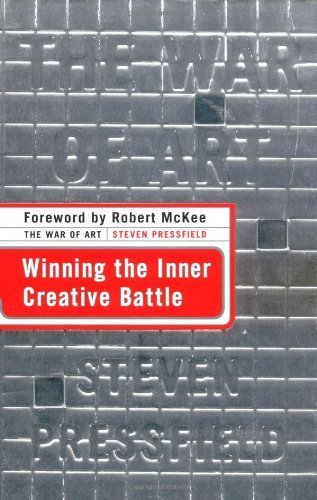
This modern classic speaks about one of the most difficult opponents any creative could be up against: Resistance. According to Pressfield, Resistance can be best described as an invisible, insidious force that stops us from doing our best work. Resistance will always come to stop us, whether it be in writing, painting, starting a business, or achieving anything in the world.
In-Depth Information:
Pressfield further splits the book into three major sections: Resistance and its enemies, Combating Resistance, and Beyond Resistance.
He delineates the facets of Resistance while pretending to be procrastination, fear, self-doubt, and sometimes even perfectionism.
The solution proposed by the book is professional: show up every day, and that is the real cure to creative paralysis.
Who it’s for: Creatives, freelancers, and entrepreneurs alike-the ones that just find themselves in a wedge somewhere in the middle of their craft.
2. Atomic Habits by James Clear
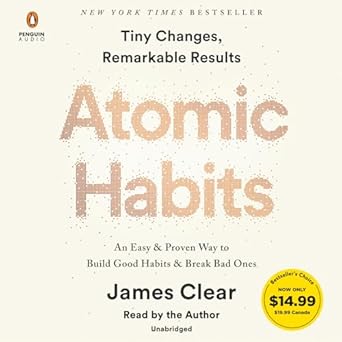
Not just a book on habits, James Clear's bestseller focuses on identity and how tiny, practically negligible changes can cause tremendous transformation. Clear walks you through a simplified version of the maze that is neuroscience and behavioral psychology into something you can put to daily use.
More Detailed Insights:
The four laws of behavior change: make it obvious, attractive, easy, and satisfying.
Habit stacking, environment design, and identity-based habits.
A powerful set of cases and real applications.
Breaking mental blocks: A lot of mental blocks come from negative habits and thought patterns. When you learn to rewire those, you give yourself the power to grow in lasting ways.
3. Mindset: The New Psychology of Success by Carol S. Dweck
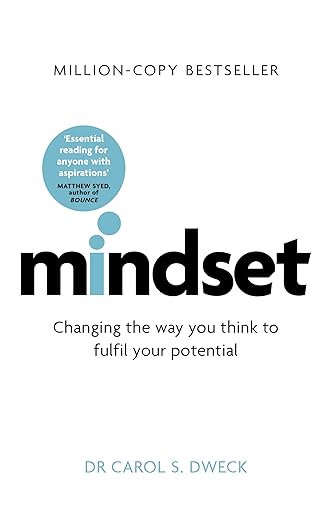
The book educates readers on the growth mindset-the understanding that abilities and intelligence can be built up from effort, learning, and persistence.
Detailed Insights:
Sets the fixed mindset (belief that intelligence is inborn) against the growth mindset (belief that it can be developed).
The book provides examples from sports, education, and business as to how mindsets affect outcomes.
Provides some practical measures to help you in shifting from a fixed mindset to a growth mindset.
Best for: Students, parents, leaders, and anyone seeking self-improvement or bouncing back from constraint.
4. Deep Work by Cal Newport
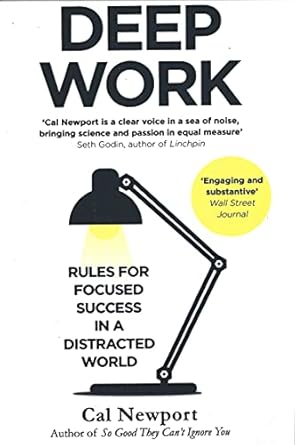
Deep Work, as a term coined by Newport, is his rallying cry against a world buzzing with distractions. Newport claims that focused, un-interrupted working is rare and valued, and in learning this craft, it can give one a competitive advantage.
Deep Details:
Know that shallow work is stuff like emails and meetings, whereas deep work is focused effort on demanding cognitive tasks.
Learn how to train your brain to concentrate for long periods.
Newport also offers methods to schedule your deep work time, how to make rituals for it and ways to cut back interruptions in your digital life.
In short: Working deeply creates mental momentum that sweeps out the clutter to prepare space for that higher state of mind where one can solve problems and create innovations.
5. Thinking, Fast and Slow by Daniel Kahneman
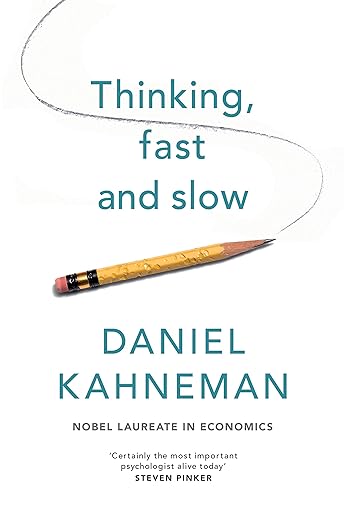
Nobel Prize winner Daniel Kahneman goes deep into how we think. The writer describes system 1 and system 2, which is how we think fast and intuitively versus slow and reasoned thinking.
In the book you will learn:
How cognitive biases influence our decision making, usually without us knowing.
Ways to be more rational, logical, and strategic in your approach to thinking.
Insights into current economic, medical, business or personal relevant examples.
Who should read this: Everyone, professionals, students, decision makers trying to make improvements in their judgment to minimize cognitive errors.
6. The Power of Now by Eckhart Tolle
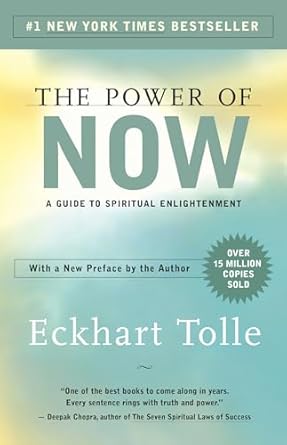
Tolle offers a perspective that goes beyond traditional thinking. He teaches you how to become still in a world where we're constantly thinking and reminds you there is greater peace in focusing on the present. It's less about doing, and more about just being.
More details:
Learn to watch your thoughts without becoming your thoughts.
You'll learn about the 'pain-body' and how it creates mental suffering.
There are activities for mindfulness and creating awareness.
Benefits: If you're struggling with anxiety, overthinking or processing past trauma, this book offers techniques to access inner stillness and mental clarity.
7. Limitless by Jim Kwik
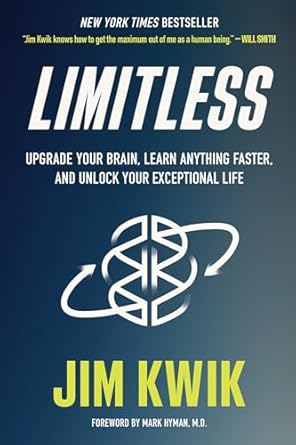
Jim Kwik provides the framework to unleash the true potential of your brain. After experiencing learning challenges, he created real strategies to learn anything faster, retain memories, and perform better with your brain.
In-Depth Learning:
Learn the FASTER method of learning anything.
Learn to identify and break limiting beliefs around intelligence.
Get tips on reading faster while retaining information, and getting more done.
Who it’s for: Lifelong learners, students, executives, and those who just want the best from their brains.
8. The Artist's Way by Julia Cameron
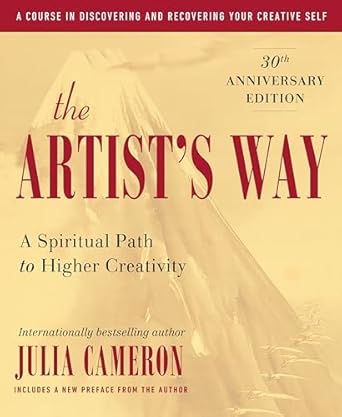
This 12-week course in book form, is a journey through spirituality, which ultimately leads to greater creative possibilities. Cameron lays out activities such as "Morning Pages" and "Artist Dates" to reconnect with your creative self.
Morning Pages - A daily freewriting practice that serves to clear highlighted thoughts from your mind.
Artist Dates - Solo adventures to replenish and generate energy for your creative self.
Eliminate self-loathing and fears that impede creative expression.
Ideal For: Writers, artists, musicians, or anyone interested in harnessing their creative essence.
9. Can't Hurt Me by David Goggins
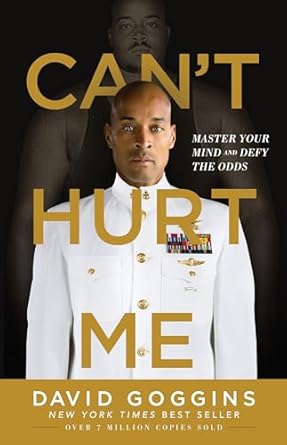
It's a truly raw, visceral, and deeply motivating tale. From a terrible early life to becoming a Navy SEAL and ultra-endurance athlete, Goggins shows the power of mental toughness.
Key Takeaways:
The 40% Rule: When your mind thinks you are done, you're only 40% done.
Callous Your Mind: You build mental strength through suffering and work, you callous yourself.
The Accountability Mirror: Face your weaknesses every day of your life.
Best For: Athletes, entrepreneurs, and anyone needing a tough-love push to break through self-limiting beliefs.
10. Stealing Fire by Steven Kotler & Jamie Wheal
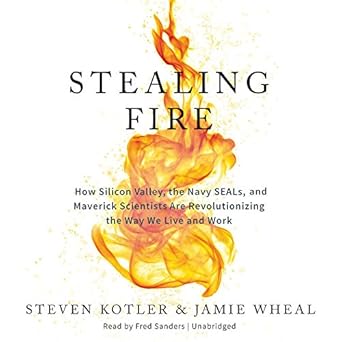
This book is about how top performers hack their brains to access altered states of experience in order to have heightened awareness and productivity. It delivers an interesting mashup of neuroscience, technology, and peak human ability.
Key Learnings:
Learn about flow states, and how these states lead to heightened creativity and performance.
Learn how elite teams from Google engineers to Navy SEALs used altered states of experience in order to have breakthroughs.
Learn about ethical access to altered states of experience without use of substances.
Best For: Creative thinkers, technologists, performing artists, and high achievers.
Additional Activities to Discourage Mental Blocks
Journaling every day: Declutter the limits of your mind and increase awareness of your thoughts.
Meditation and breathwork: become comfortable with lull in the mind again so that you can get back to focused thinking.
Exercise: Generate neurogenesis and allow for emotional release.
Digital detox: diminish the amount of time you spend on screens to allow for focused attention.
Creativity rituals: develop qualities of practice that trigger your mind in to a 'flow mode'.
Conclusion
Mental blocks are not forever but potentials to shift or grow. Each of the 10 books presents an opportunity to enter a new way of thinking, sharpen clarity of ideas, and create new pathways to creativity. Whether you are rekindling your focus, reigniting a purpose, or reprogramming habitual input, all your next steps will develop from secondary to primary option in the pages of these insightful books.
Focus on one. Read carefully. Implement the information. Witness as new avenues of thought develop.
Your mind is your biggest asset, invest in it prudently.
Frequently Asked Questions (FAQS)
Q1. What are the top books to help overcome mental blocks?
The top books to help overcome mental blocks are Atomic Habits by James Clear, The War of Art by Steven Pressfield, Mindset by Carol Dweck and Deep Work by Cal Newport. These extraordinary books provide actionable tools, strategies and mindset changes to clear creative, cognitive, and emotional blocks.
Q2. Can books make a difference in overcoming mental barriers?
Absolutely, The right books can provide you with new mental models, techniques, and inspiration to identify, interrogate, and reprogram your limiting beliefs. Books can change the way you think and help you develop positive habits.
Q3. What is the best book for better focus and productivity, and why?
Deep Work by Cal Newport stands out as one of the best books for improving focus and productivity. It provides science-backed techniques to eliminate distractions and train your brain to think much bigger when doing high-performance work.
Q4. How do I know which book to read for the mental block I am having?
Recognize the actual issue you are dealing with when it comes to procrastination, fear of failure, low motivation, or lack of clarity. Select a book addressing that exact problem; for instance, the Resistance that you face in The War of Art, or the self-limiting beliefs contained in the book Mindset.
Q5. Are audiobooks just as effective for mental transformation?
Absolutely, But only if you are positioned to listen to them with focus and intent. To better retain insights from the book, you should take notes while listening, or if you have the book in physical or eBook, follow along as you listen.
Comments (0)